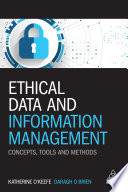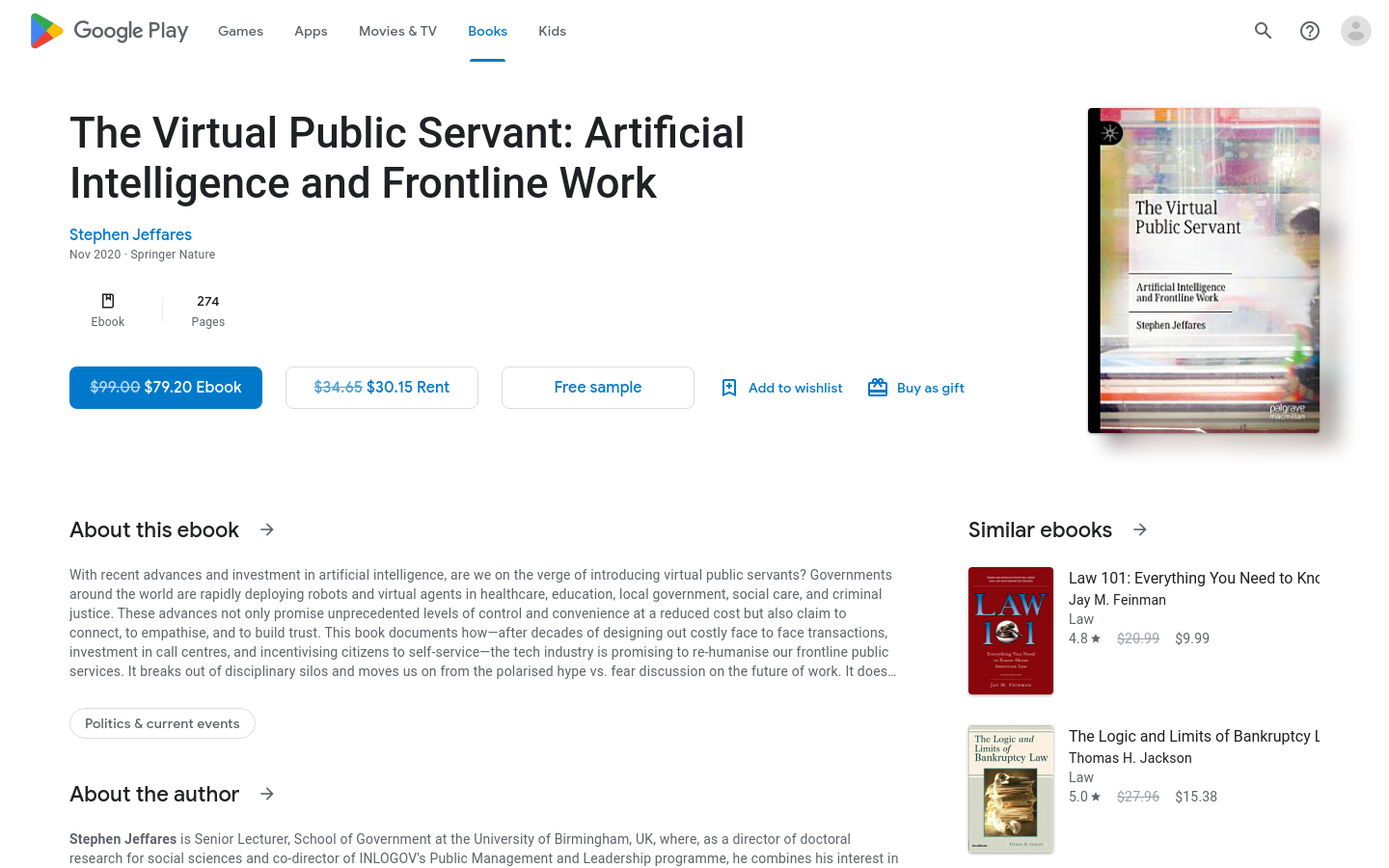Civic Tech Field Guide
Sharing knowledge and productively growing the fieldSearch Results - Act (3335)
Showing 3335 Results

This timely reader provides an anthology of the literature on social movements, including the key texts relating to the notions of conflict, social change and collective action.

MosaicLab
Melbourne VIC, Australiawe’re a highly experienced team of facilitators and community engagement practitioners specialising in high influence and deliberative engagement

This timely book brings together key thinkers and projects from a wide range of fields and perspectives into one volume to provide a valuable resource that would enable the reader to take their own critical position within the topic.

This volume explores the nature of the Internet's impact on civil society, addressing the following central questions: is the Internet qualitatively different from the more traditional forms of the media? has the Internet demonstrated real

Smart cities are now prevalent around the world, in large part because the smart city promises to create a more efficient, equitable, innovative, competitive, sustainable and livable community

Global in scope, books in the series are characterised by a stress on comparative analysis and strong methodological rigour

Bringing together ten leading researchers in the field of deliberative democracy, this important book examines the features of a Deliberative Mini-Public (DMP) and considers how DMPs link into democratic systems

This book assesses the interplay between social media, political polarization, and civic engagement, focusing on countries with differing media environments, cultural specifics, and degrees of democratization

This book comprehensively describes the impact of modern technologies on political leadership by providing a new paradigm of the phenomenon of neo-leadership, that is political leadership oriented on creating both the image and political

This book presents creative forms of sharing driven by idealistic positions and collective actions, thus offering new approaches to sharing of spaces and architecture, experience and knowledge, data and collective histories

The book features contributions that report original research in the theoretical, technological, and social aspects of geoinformation methods, as applied to supporting citizen science.

Information and how we manage, process and govern it is becoming increasingly important as organizations ride the wave of the big data revolution. Ethical Data and Information Management offers a practical guide for people in organizations who are tasked with implementing information management projects. It sets out, in a clear and structured way, the fundamentals of ethics, and provides practical and pragmatic methods for organizations to embed ethical principles and practices into their management and governance of information. Written by global experts in the field, Ethical Data and Information Management is an important book addressing a topic high on the information management agenda. Key coverage includes how to build ethical checks and balances into data governance decision making; using quality management methods to assess and evaluate the ethical nature of processing during design; change methods to communicate ethical values; how to avoid common problems that affect ethical action; and how to make the business case for ethical behaviours.

The production and consumption of news in the digital era is blurring the boundaries between professionals, citizens and activists. Actors producing information are multiplying, but still media companies hold central position. Journalism research faces important challenges to capture, examine, and understand the current news environment. The SAGE Handbook of Digital Journalism starts from the pressing need for a thorough and bold debate to redefine the assumptions of research in the changing field of journalism. The 38 chapters, written by a team of global experts, are organised into four key areas: Section A: Changing Contexts Section B: News Practices in the Digital Era Section C: Conceptualizations of Journalism Section D: Research Strategies By addressing both institutional and non-institutional news production and providing ample attention to the question ‘who is a journalist?’ and the changing practices of news audiences in the digital era, this Handbook shapes the field and defines the roadmap for the research challenges that scholars will face in the coming decades.

Global in scope, books in the series are characterised by a stress on comparative analysis and strong methodological rigour

What are your key Citizen science organizational performance measures, including key short and longer-term financial measures?

In revealing this history, the book provides a rich empirical look at the communication tools, practices, and infrastructure that shape contemporary online campaigning

This book critically examines ‘smart city’ discourse in terms of governance initiatives, citizen participation and policies which place emphasis on the ‘citizen’ as an active recipient and co-producer of technological solutions to ...

newDemocracy Foundation
New South Wales, AustralianewDemocracy is an independent, non-partisan research and development organisation. We aim to discover, develop, demonstrate, and promote complementary alternatives which will restore trust in public decision making.

This book provides a concise and usable overview of the practical implications of important public sector United States federal, state, and municipal laws and standards related to information governance, as they pertain to librarians, research staff, universities, corporate regulatory managers, and public-sector information governance professionals. It is the first in a series of two volumes addressing public sector information governance compliance matters from the perspective of our target audience. Topics addressed in the book include: the evolving role of librarians and the need for librarians and legal researchers to understand the principles of information governance, the importance of broad-based regulatory IG principles such as the Federal Records Act, the Paperwork Reduction Act of 1980 and 36 CFR Chapter XII, Subchapter B – Records Management, that have been promulgated by various federal government agencies in framing public-sector IG principles, a survey of interpretive surveys from the Office of Management and Budget (OMB) that further elucidate the core IG principles applicable to public sector stakeholders, case studies detailing the application of important IG principles by federal agencies and bodies, and a survey of important IG issues facing state and local governments.

Democracy in the Digital Age is a fascinating philosophical exploration of how the emerging information and communication technologies are impacting political participation in the United States

This volume represents the authentic voices of the thinkers, writers and designers who are helping to build a 'canon' of informed literature which documents the development of the discipline.

Who Counts? is the story of the lawsuits, congressional hearings, and bureaucratic intrigues surrounding the 1990 census

This clear-eyed guide steps back from hyperbolic hopes and fears to offer a balanced account of what aspects of politics are being shaped by digital media and what remains unchanged

This book is a collection of reflections by thought leaders at first-mover organizations in the exploding field of "Data Science for Social Good", meant as the application of knowledge from computer science, complex systems and ...

Exploring the relationship between technology and cities, this book brings together an outstanding group of authors in the field to provide a critical and necessary examination of the disruption that is under way.

This book addresses contemporary issues on civic and citizenship education, challenging not just schools but society as a whole. It highlights emerging social influences on civic engagement and democracy in the third decade of the 21st century and analyzes the interaction between these influences and their impact on society. It demonstrates that changes are so complex and the challenges so new that an entirely revised agenda is needed for civic and citizenship education. The book takes society and the changes occurring within it as the starting point and assesses the implications of these changes for schools.

In this eBook, Designing the Urban Future: Smart Cities, we take a good look this relatively new concept, starting with Section 1, "Cities of the Future," which tackles what makes a city smart.

This work was published by Saint Philip Street Press pursuant to a Creative Commons license permitting commercial use. All rights not granted by the work's license are retained by the author or authors.

This book documents how—after decades of designing out costly face to face transactions, investment in call centres, and incentivising citizens to self-service—the tech industry is promising to re-humanise our frontline public services

Completely revised and expanded, the ultimate guide to starting—and keeping—an active and effective volunteer program Drawing on the experience and expertise of recognized authorities on nonprofit organizations, The Volunteer Management Handbook, Second Edition is the only guide you need for establishing and maintaining an active and effective volunteer program. Written by nonprofit leader Tracy Connors, this handy reference offers practical guidance on such essential issues as motivating people to volunteer their time and services, recruitment, and more. Up-to-date and practical, this is the essential guide to managing your nonprofit's most important resource: its volunteers. Now covers volunteer demographics, volunteer program leaders and managers, policy making and implementation, planning and staff analysis, recruiting, interviewing and screening volunteers, orienting and training volunteers, and much more Up-to-date, practical guidance for the major areas of volunteer leadership and management Explores volunteers and the law: liabilities, immunities, and responsibilities Designed to help nonprofit organizations survive and thrive, The Volunteer Management Handbook, Second Edition is an indispensable reference that is unsurpassed in both the breadth and depth of its coverage.

Technology also expands the nature and volume of data collected by governments, altering the significance of open government data and rendering its practice more complex. In this evolving context, this book explores the future of open data.

Drawing on the theoretical debates, practical applications, and sectoral approaches in the field, this ground-breaking Handbook unpacks the political and regulatory developments in AI and big data governance. Covering the political implications of big data and AI on international relations, as well as emerging initiatives for legal regulation, it provides an accessible overview of ongoing data science discourses in politics, law and governance. This title contains one or more Open Access chapters.

This book highlights some of the most fascinating current uses, thought-provoking changes, and biggest challenges that Big Data means for our society

This book reflects on the implications of WikiLeaks across politics and media, and on the results of leak journalism and transparency activism

The first book devoted to a critically important aspect of disaster planning, management, and mitigation Technology and Emergency Management, Second Edition describes best practices for technology use in emergency planning, response,

This book examines deliberative democracy and its practical forms and applications in local government public policy

Ideal for art and media educators within preservice and higher education spaces, this book equips readers to prepare their students to be thoughtful and critical producers of their own media that can effectively advocate for social change.

This work has been selected by scholars as being culturally important, and is part of the knowledge base of civilization as we know it

Drawing on diverse theoretical perspectives, this book examines questions of youth citizenship and participation by exploring their meanings in policy, practice and youth experience. It examines young people's participation in non-government and youth-led organisations, and asks what can be done to bridge the democratic disconnect.

These debates have, however, taken place before the rise of open data and big data and the development of an open data movement. The book considers the role of the open data movement in fostering transformation to a knowledge society.

The Oxford Handbook of Deliberative Democracy takes stock of deliberative democracy as a research field, in philosophy, in various research programmes in the social sciences and law, and in political practice around the globe

Contributors explore issues of ethics, politics, and positionality in their work. This book highlights the importance of respecting multiple knowledge streams, worldviews, and practices situated in a place.

User Unfriendly will be valuable to historians of technology, students of American culture, and anyone interested in our modern dependence on machines and gadgets

MASS LBP
TorontoWe have led more than 50 Reference Panels and Citizens’ Assemblies contributing approximately 71,000 volunteer hours to policy-making in Canada — making MASS internationally recognized for its work in public deliberation.






